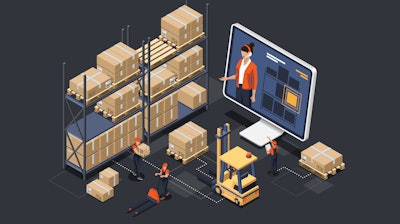
If you’re like many distributors and manufacturers, you may be leaving money on the table for over 30% of orders. Even the smallest improvements in order fulfillment can breathe life back into your profits and your competitive edge.
Think about how a single mistake on an order can result in losses in revenue and customers. Sloppy orders affect profits, and with margins razor-thin, every order must be mistake-free.
I firmly believe that order accuracy isn’t just a metric — it’s a lifeline. When it comes to order fulfillment, distributors have the opportunity to achieve what I call “flawless order execution.”
The Evolution of Fulfillment Processes
Order fulfillment has historically been a highly manual and paperwork-heavy process. From receiving orders to updating inventory records manually and locating items using written picklists to packing orders and shipping, these steps are highly inefficient and prone to human error. Discounts, mispicks and delays are all too common.
Why Order Accuracy Matters for Improved Fulfillment
Having 100% order accuracy is a huge challenge for highly complex, modern fulfillment systems. Ever-increasing customer expectations and specifications make high-volume orders an intimidating technical obstacle.
With the rise of AI in today’s enterprise software, precise order fulfillment is possible. Every order is processed quickly and error-free; not only do customers receive what they ordered on time, every time, but AI systems can quickly identify and resolve mistakes in seconds. What we’re seeing is the fulfillment process moving from tedious inventory management to an error-free process that benefits the business and its customers.
Here are three positive outcomes of great fulfillment:
Enhanced Trust and Loyalty: Accurate order fulfillment builds trust and strengthens long-term relationships.
Reduced Costs: If you add orders and errors together, it equals waste. An error-free fulfillment process can lower the expense of handling returns and replacements and fielding a higher volume of (unhappy) customer service requests.
Improved Efficiency: Optimized inventory and fulfillment systems will help you handle higher order volumes while lowering overhead costs.
Order Accuracy and Fulfillment
With intelligent fulfillment processes, you can also detect order patterns that result in costly issues. For instance, if a warehouse employee selects the wrong product, AI-enabled item scanners can instantly identify discrepancies and prevent the order from advancing through the fulfillment process.
AI also ensures that complex pricing, volume and discount dynamics are applied across all platforms. Most ERP systems leverage this functionality to synchronize order data, inventory levels, and shipping timelines.
Many of the largest global distribution centers, such as Walmart and Target, have massive AI investments to manage order integrity and fulfillment operations. Whether large or small, AI allows manufacturers and distributors to improve order management and the entire fulfillment process.
Adopting AI for Improved Order and Fulfillment Management
Working with end-users, we often hear how they feel trepidation when it comes to adopting AI into their operations. Here are three practical steps to consider:
Validate Order Accuracy: Improving your fulfillment process is difficult if you have messy orders riddled with errors. AI is great for reviewing large data sets to identify errors and prevent flawed orders from ever entering the fulfillment workflow. Having flawless orders is imperative to a healthy process.
Get Predictive: Seeing the future isn’t as difficult as it sounds. Predictive analytics for inventory and demand forecasting is a logical step into AI adoption. Start by analyzing your historical data and ordering trends to gain visibility into current forecasting processes.
Pair AI with Workflows: Many ERP systems and point solutions are AI-powered to improve fulfillment workflows. For a higher-impact approach, in addition to ensuring orders are exact, you can detect and address problems like mismatched orders or inventory discrepancies.
Adopting AI is a strategic endeavor that requires focus and commitment. You’ll likely face system integration challenges while trying to gain buy-in from your full team. It’s best to start by identifying where and how AI can have an immediate impact. More modular AI solutions are a great option when getting started, as they allow for scalable adoption and ease of integration. Open communication and hands-on training are crucial to forging new and more accurate order management and fulfillment processes.
Dean Holmes is the lead product marketing manager at Cavallo.






















